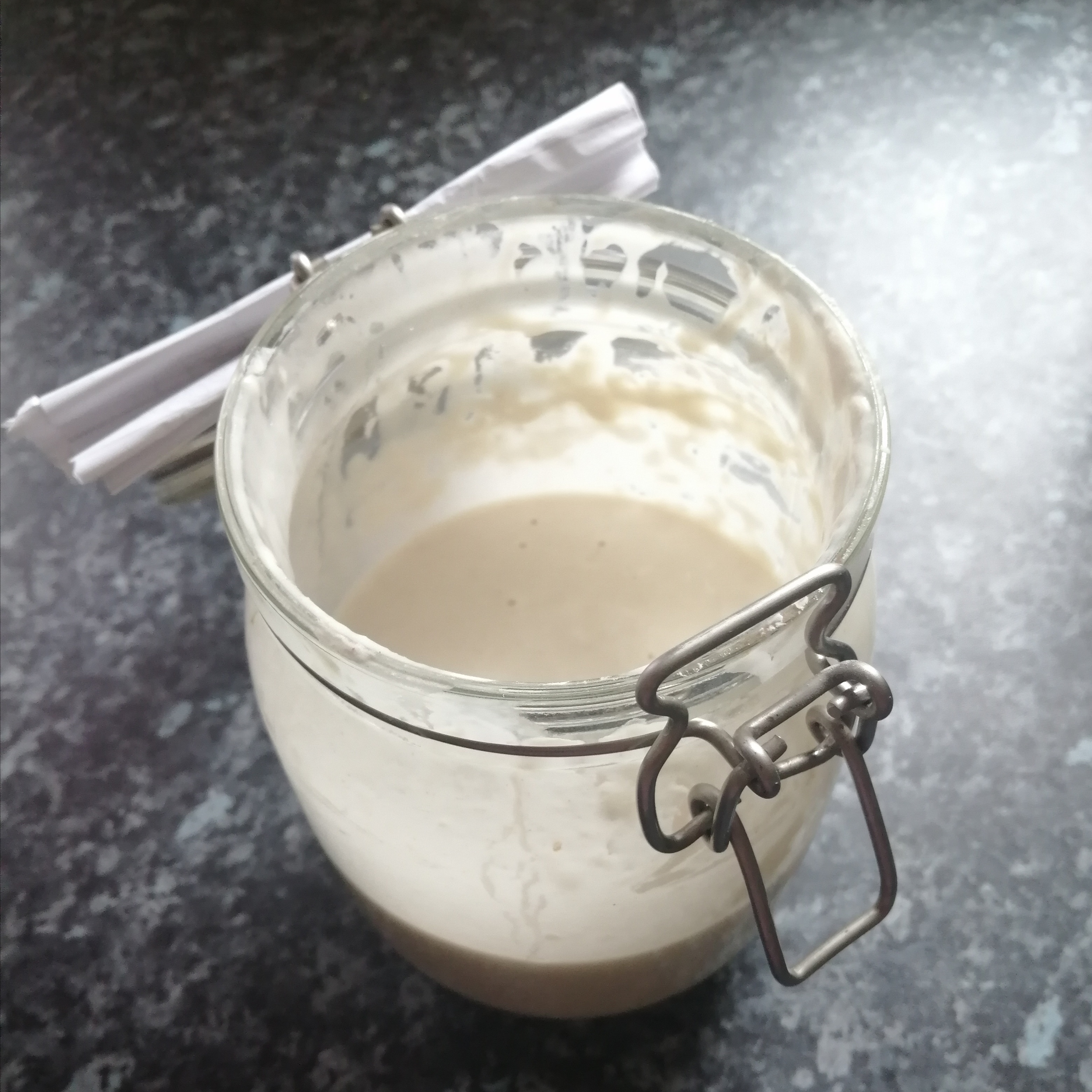https://images.hive.blog/DQmdRionCtW9sLQhWiuF2obRJ6Hm1GaKUMQeeRHUvHevygR/IMG_20200614_080230_405.jpg

Do the words "sourdough bread" conjure a yearning for crusty, rustic loaves with yeasty, tangy aromas? You are not alone. This slowly fermented bread honors the traditional art of baking and has a history dating back to 3000 BC in ancient Egypt. Baking a loaf of sourdough may entertain idle hands, and provide a welcome change from the norm, but is it healthier? Here's what you need to know.
**What is sourdough bread?**
Traditional sourdough bread recipes contain three simple ingredients. To make it, you just need salt, flour, and the magical alchemy of a sourdough starter. There is no need for instant or fresh yeast, milk, oils, eggs, or even sweeteners. A sourdough starter is a fermented mix of just two magical ingredients, flour and water, that contains colonies of bacteria and yeast. The yeasts in the starter are varying strains of Saccharomyces, which are wild relatives of yeast used in commercial preparations.

In sourdough bread, the starter acts as the rising agent. The yeast uses the carbohydrates from flour to produce ethanol and carbon dioxide. The carbon dioxide becomes trapped in the bread dough, which makes it rise. It's different from bread made with commercial yeast in that it takes much longer to ferment fully. Additionally, the dough will have increased flavor due to the organic acids created as a byproduct of natural fermentation. It's this process that imparts the characteristic tangy or sour flavor that gives sourdough its name.

**So is a Sourdough bread healthier than regular bread?**
Although sourdough bread may not seem that different from regular bread, the fermentation process that the sourdough starter goes through introduces a whole slew of nutritional benefits. Here's why sourdough bread might be a healthier choice than other kinds of bread: + Your body absorbs more nutrients from sourdough bread. Bread of all types contains essential minerals such as calcium, magnesium, and iron. However, we can't easily absorb these nutrients due to compounds called phytates, or phytic acid, that bind to them. But sourdough, unlike other breads, contains lactic acid. This lactic acid neutralizes levels of phytates because it lowers the pH of the bread. As a result, sourdough bread has a higher level of available minerals and up to 62% less phytic acid than conventional bread. lactic acid also increases the bioavailability of the ingredients, which means that nutrients from the bread are more quickly and readily available for your body to use.

+ Sourdough is easily digested and less likely to cause food intolerances and digestion issues. That's because sourdough bread is more digestible than the average commercial loaf of bread made from standard baker's yeast. In fact the fermentation process breaks down some of the gluten, and that makes it more digestible, especially for people who struggle to digest gluten, this leads toless bloating with sourdough bread. However, people who have coeliac disease need to be cautious. Coeliac disease is a condition when a person's immune system attacks their own tissues when they eat gluten. And sourdough still contains gliadin, the part of the wheat protein that affects people with coeliac. There are gluten-free sourdough bread options that coeliacs can try. Plus, for added bonus, the sourdough fermentation process makes gluten-free bread softer and similar in volume and taste to regular bread. + Sourdough is also prebiotic. Prebiotics are nutrients that feed the beneficial bacteria in your digestive system, which help keep the gut healthy and improve digestion by increasing the availability of nutrients.

**The bottom line**
Sourdough is a healthier alternative to regular white or whole wheat bread. Although it has comparable nutrients, the lower phytate levels mean it is more digestible and nutritious. The prebiotics also help to keep your gut bacteria happy, and it may be less likely to spike blood sugar levels. Besides the nutritional benefits, you can also enjoy the therapy of home baking and the unique sourdough flavor. **NOTE - Don't then do as I do, and add an inch of butter!!

Originally posted here: https://hive.blog/hive-174578/@welshstacker/why-sourdough-bread-is-healthier-than-regular-white-or-wheat-bread










No comments:
Post a Comment